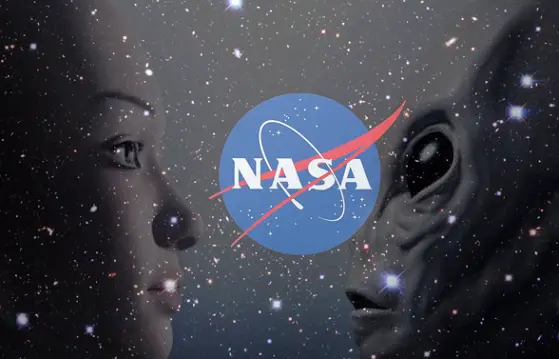

In the age where technology reigns supreme and our skies are constantly monitored by satellites, the intrigue surrounding UFO sightings remains undiminished. For decades, unidentified flying objects have captured the imagination of many, fueling countless conspiracy theories. But in a fascinating turn of events, NASA – an institution centered on scientific exploration – is delving into the realm of the unknown, specifically the Unidentified Aerial Phenomena (UAP).
For those new to the term, UAPs are essentially UFO sightings backed by some credible pieces of evidence. The approach to these phenomena has evolved over the years, often straddling the line between skepticism and genuine curiosity.
Dr. Thomas Zurbuchen, a former NASA official, voiced that the solution to these sightings isn’t necessarily to create a dedicated UAP program, but to incorporate it into NASA’s existing research strategies. This isn’t the first time NASA has assimilated such an approach. A few years back, the search for technosignatures, such as scanning for alien radio signals, was embedded into NASA’s research framework. This move came in the wake of a bill that deemed the search for extraterrestrial life as one of NASA’s key objectives.
However, embracing UAP research isn’t just about quenching mankind’s thirst for the unknown. For NASA, it is also an opportunity to incorporate artificial intelligence into its analysis toolkit. The unpredictable nature of UAPs brings with it the challenge of diving deep, adopting high-risk, and potentially high-impact research methods.
In an endeavor to truly understand and possibly decode the UAP enigma, NASA has leaned towards the use of Earth-observing satellites and the Vera C. Rubin Observatory. Furthermore, the space agency is harnessing the power of crowdsourcing and AI to identify patterns in UAP reports.
One intriguing aspect, revealing the global reach of the UFO phenomenon, is the so-called ‘Chinese balloon incident’. This involved unusual objects seen around U.S. Navy planes, particularly in the Pacific. The rapid advancements in drone technology, as evidenced in recent global events, have further highlighted the pressing need to understand, document, and possibly demystify UAPs.
What’s particularly enthralling is NASA’s interest in launching a phone app geared towards recording UAPs. This app aims to document sightings in a manner that produces valuable data while minimizing the chances of false reports. Such an initiative not only democratizes the process but also reduces the conspiracy haze that often shrouds UFO sightings.
In conclusion, as our quest for understanding the universe deepens, institutions like NASA are embracing the challenge, marrying cutting-edge technology with human curiosity. And who knows? The next big UFO sighting might just be decoded using an app on your smartphone!
Journalist: Pentagon’s “Immaculate Constellation” UFO program hides vast, classified evidence. Lawmakers demand full disclosure. Read More
Ex-Army remote viewer Dr. Paul H. Smith reveals hidden UFO bases, moon missions & the… Read More
Joe Rogan reveals 5 chilling alien encounters—from Zimbabwe’s school UFO to Brazil’s Roswell and Navy… Read More
Mantis aliens: real rulers of Earth? Ancient carvings, abductions & mind control suggest they’ve been… Read More
Whistleblower claims Pentagon hides thousands of UFO videos in a secret program called Immaculate Constellation.… Read More
Ex-presidential advisor Malmgren says he held UFO material & saw alien survivor video. Secret tech… Read More
This website uses cookies.
View Comments
What bullsh*t! NASA is part of the overall coverup being carried out by our entire federal government, for them to ask us for our UFO footagehas to be one of the most disingenuous things they've done! They sit on so much evidence, so many undisclosed files plus they know EXACTLY what's going on with the whole phenomenon! Bastards!
JWST..Is NASA's eye in space. They should be able to pickup UAP signals with their infrared track trace. JWST can follow many objects at the same time. I wouldn't be surprised if they are already collecting data on our cosmic family through their latest space telescope.
Hey NASA.. set-up monitoring stations throughout New Zealand. Starting from my isolated address.